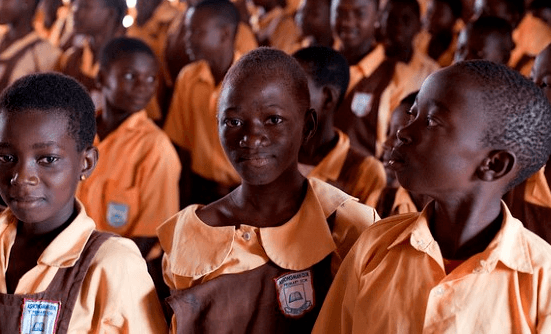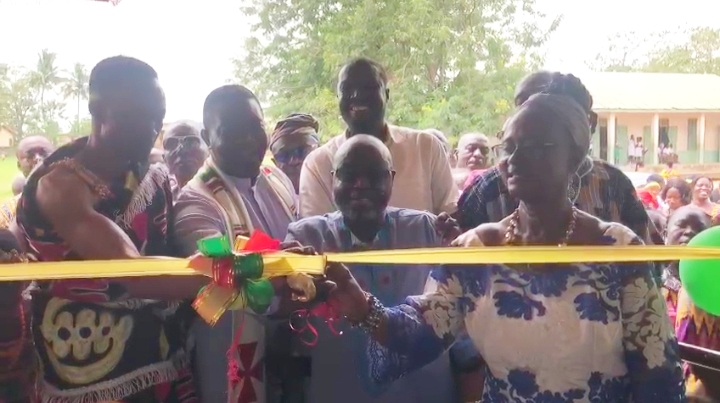
Schools in Ghana have been hit by a shortage of toilets and pit latrines which could affect the learning process of pupils, and a possible outbreak of disease.
Only 2 out of 5 schools in Ghana have toilets or pit latrines and running water. As a result children often miss classes because they have to alternate to use the toilet. According to UNICEF and Ghana Statistical services close to thousands of schools in the country lack toilets and pit latrines.
David Duncan, UNICEF's, Chief of Water Sanitation and Hygiene (WASH), said that Ghana ranks lowest in sanitation levels among all lower middle income countries, and much needs to be done if the situation is be averted.
"What is challenging is that in Ghana we know that only two out of every five schools in Ghana have water in the schools and only three out of five schools have toilets in the schools. 3,000 schools have no toilets," he told DW.
"To make it even challenging, the proportion of toilets is not increasing it is rather going down. Toilets fill and are not emptied because there is no money and so they have to be closed becauseno one can pay the water bill,"
For pupils in northern Ghana, they often resort to visiting commercial toilets yet many cannot afford the fees.
Hussein Issahaku, a pupil ate Dau-rel Islam Basic School in tamale, told DW that, "I go to the nearby public toilet, and if I don't have money, they won't let me use the toilet," he said.
The lack of toilets and water in Tamale has affected the quality of education especially in northern Ghana. Anabila Atinga told DW how they send pupils back home in extreme cases for relief. "When a child is having diarrhea, then we have a problem. We have sometimes asked the student to go home or to go to the nearby toilet," she said.
Water challenges
Issahak Abdul Latif, a senior official at Metropolitan Education office, said the absence of toilet facilities and water in schools was hampering progress of education.
"We don't even have hand washing facilities. After finishing their call of nature, the children normally will just run to their classrooms, and you can imagine once they finish that they can just deep their hands inside food and start eating. So it has been a big challenge not just for this school but almost all the schools we have," he said.
The communities surrounding school premises have not been helpful perhaps due to the magnitude of the situation.
"Sometimes we run to the nearby houses begging for water and the women will just hurl insults at us. This leaves us with no option other than using our dirty hands to eat," Amadu, a pupil said.
At the nearby Central Zaharia elementary school, the situation was not any different UNICEF with support from the Netherlands lunched a multi purpose sanitation and hygiene facility.
Pupils like, Amina Sulemana often had a difficult time to use the toilet because of lack of fees. "We always struggled during school hours learning time, especially when someone has diarrhea. The toilet here is a public one. If you don't have money you won't be allowed to enter. Some times we soiled ourselves and come and sit in the class."
Read Full Story





















Facebook
Twitter
Pinterest
Instagram
Google+
YouTube
LinkedIn
RSS